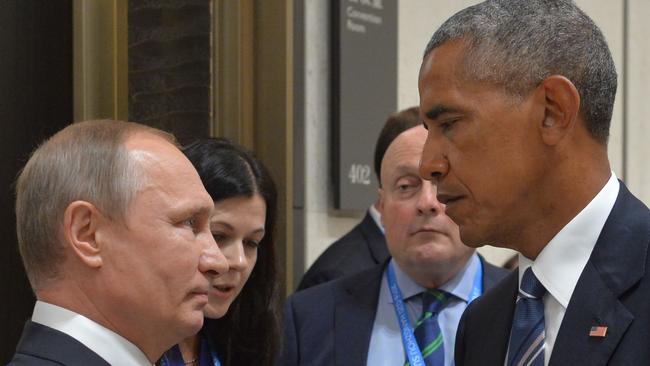The pieces of Putin’s grand plan to remake the global oil market are falling into place


Step by step, Russian President Vladimir Putin is making advances in his grand plan to become the major player in the oil market by co-ordinating the conflicting forces in the Middle East.
And, at the G20 conference, Putin made it clear to all participants where he was headed as he re-signed with Saudi Arabia.
Significantly, the Saudi’s greatest supporter, the United States of America, was not part of the game and Russia replaces US influence.
While we may dislike Putin and be rightly apprehensive about his long-term ambitions, Australia, as a major LNG exporter, has a big stake in what he is trying to achieve.
When I first began discussing the Putin plan almost a year ago (The oil market’s new world order, October 9), it looked to be a long shot because of the many hurdles the Russian President faced. Despite serious setbacks over the last year, it’s remarkable what Putin has achieved.
To have any hope of co-ordinating the oil market Putin had to do what the Americans had failed to do and bring a degree of peace to the Middle East.
Putin was able to bring together Syria, Iran and Iraq to take on Islamic State. But Saudi Arabia, as a Sunni-controlled nation, had no love for the Russian partners. Meanwhile, while the US has been important in Iraq, it is Russia that made the difference in Syria, albeit that it has been ruthless and backed the despised Syrian dictator Bashar Hafez al-Assad.
While Islamic State bombing of civilians is increasing, its territory is diminishing thanks to the Russia-Syria-Iran-Iraq push and helped also by the US in Iraq.
On the way, Putin annoyed Turkey but Turkey has now joined the Putin cause after the failed coup attempt, which many in the Middle East believe America tried to engineer. As we all know, in the Middle East belief can be more important than the facts.
Let’s restate Putin’s long term goal — a duplication of the oil cartel that was signed in Scotland some 90 years ago involving Exxon (then the Rockefeller’s Standard Oil), BP (then the Anglo-Persian Oil Co), Rothschild’s’ Shell and others.
That cartel has long gone but the new one will require a Russian co-ordinated agreement involving Iran and Saudi Arabia as well as Syria and Iraq.
Iran has been a major force in retaking Islamic State territory. The problem is that Iran does not want to curb production until it has restored output to pre-sanctions levels.
The February agreement with the Saudis broke down on this front. Now there is another Russian-Saudi deal at the G20. This one is probably more of a signal to the other G20 nations but even if it is light on substance, it will advance the overall Russian cause.
Importantly, demand for oil keeps rising and while the US shale oil production has been maintained due to improved technologies, the global oil market still shows all the signs of running into shortages in two or three years. That’s why the price has risen.
BHP among others has oil down as an area where it now wants to expand.
Of course, the Russian economy is precarious and desperately needs a higher oil price. But China has given Russia a lot of contract support in commodities and other areas.
What is dangerous for the West is that if Russia starts to engineer the oil price higher, then the next stage of the possible agenda — a military push into Ukraine and the Latvian states — will be looked at more closely.
And remember, with Russia and China now believing that they have or will have military superiority over the US, the world is a more dangerous place (Markets can’t afford to ignore the resurgence of major power politics, August 30).
Hear from Alan Kohler, Robert Gottliebsen, Stephen Bartholomeusz & John Durie at a special member Q&A. Find out more or book tickets here.






To join the conversation, please log in. Don't have an account? Register
Join the conversation, you are commenting as Logout